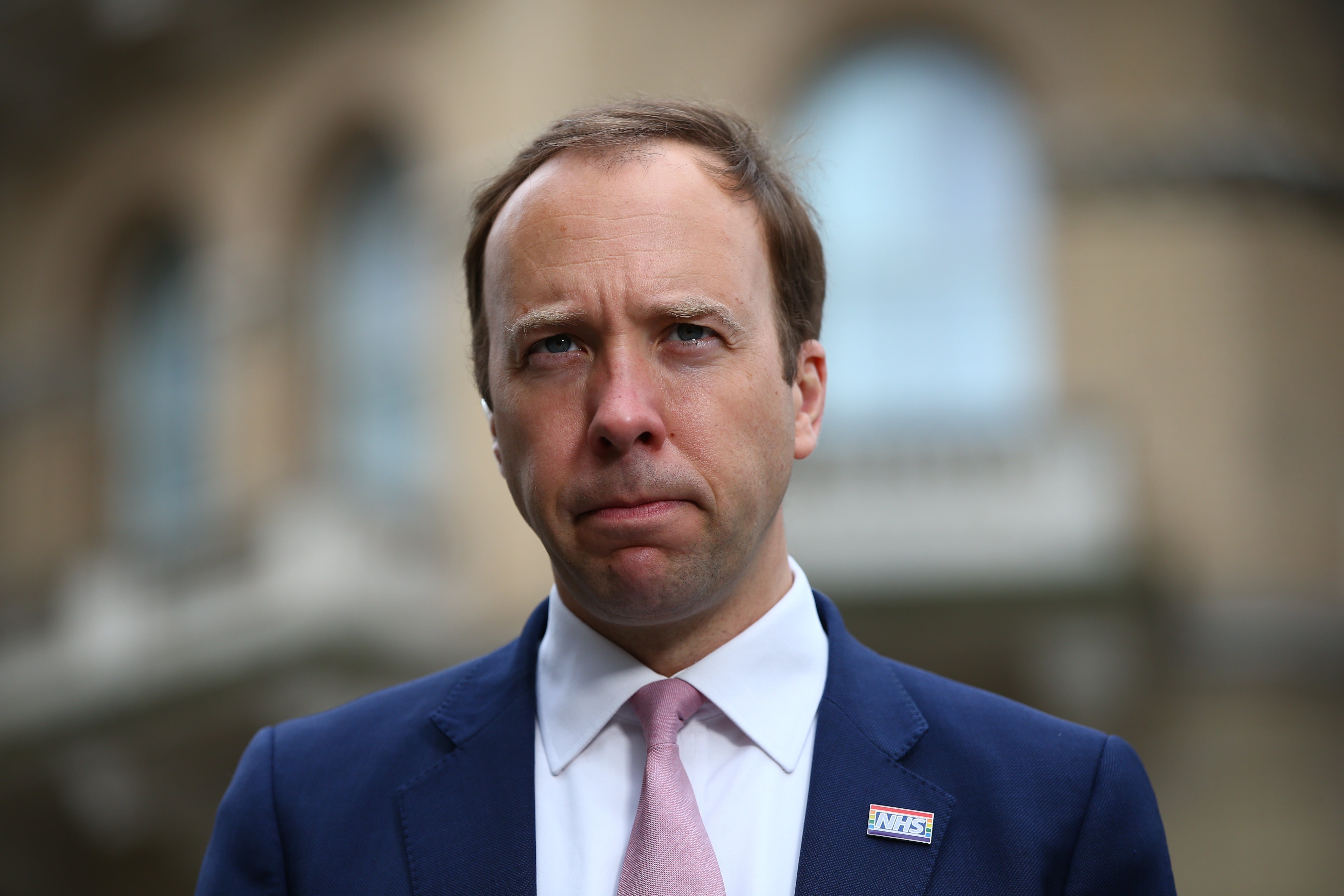I’m a palliative care doctor – Matt Hancock betrayed the nation
The then health secretary declared that he – rather than the medical professionals – ‘should ultimately decide who should live or die’, writes Dr Rachel Clarke. This isn’t just nonsense, but outrageous arrogance


Of all the revelations this week about Downing Street’s various WhatsApp catfights, foul language, sexism, indolence, ineptitude and indifference during the Covid-19 pandemic, nothing was quite as toe-curling as what we learned about Matt Hancock.
The cricketing skit was bad enough. According to the then deputy cabinet secretary, Helen MacNamara, the nation’s health secretary told her he was “loving” the responsibility of leading the NHS through the worst and most deadly crisis in its history, before taking up a batsman’s stance before her in Downing Street. He mimed knocking Covid for six as he bragged, “They bowl them at me, I knock them away”.
Yet even this was nothing compared to the extraordinary testimony from Simon Stevens, the former CEO of NHS England. In the event that the NHS became overwhelmed, Stevens told the Covid Inquiry, Hancock declared that he – rather than the medical professionals – “should ultimately decide who should live or die”.
The idea that any politician would be better equipped to make such difficult ethical decisions over and above the senior doctors who spent six years at medical school, then 10 years in medical training, and who immerse themselves in matters of life and death on a daily basis, is nonsense. Even worse: it’s arrogant.
I am a palliative care doctor. For me and my colleagues, matters of life of death are particularly familiar. We ask ourselves these vital questions on a daily basis: should we continue or withdraw life-prolonging treatment? What are the patient’s views on this matter and how do we honour them? Can anyone shed light on what mattered most to a patient no longer able to speak for themselves?
No-one wants to have these conversations. But it’s our job – one we strive to undertake with the utmost sensitivity and gravity.
Sometimes you lie awake all night haunted by whether the “best interests” decision reached in an emergency hospital ethics committee was the right one. It can weigh on your soul – and it should do. Anyone who imagines themselves playing God lightly shouldn’t be within a million miles of the NHS, let alone involved in life-and-death decision-making.
So where does this leave Hancock, a man whose moral compass seems so skewed he saw nothing wrong in parading himself on reality TV after his fall from grace? A man who assured the nation he would be giving generously to his local hospice, then donated a mere 3 per cent of his £300,000 ITV appearance fee to charity? Who still thinks he can justify breaking the Covid laws he imposed on others with the airy assertion that he was “in love”?
I often thought about love during Covid. As I held the iPad close to a dying patient’s face while their husband, wife or child sobbed their goodbyes. As some of my colleagues left their children for months to live in hospital accommodation so as not to infect them with the virus. As my own children cried and begged me not to go to work because they didn’t want their mum to die. Love is sinew, courage, self-will and sacrifice. Above all, it means elevating someone else above yourself.
The only part of Hancock I have witnessed in elevation is his stratospheric self-delusion. As Helen MacNamara put it this week, he displayed “nuclear levels of overconfidence”. Hancock was the Mr Bean of pandemic management who saw himself, ludicrously, as its Top Gun.
His folly and lack of insight may be pitiful, but for a country still bruised and reeling from a Covid death toll of over 200,000, they are nothing less than tragedy.



Join our commenting forum
Join thought-provoking conversations, follow other Independent readers and see their replies
Comments